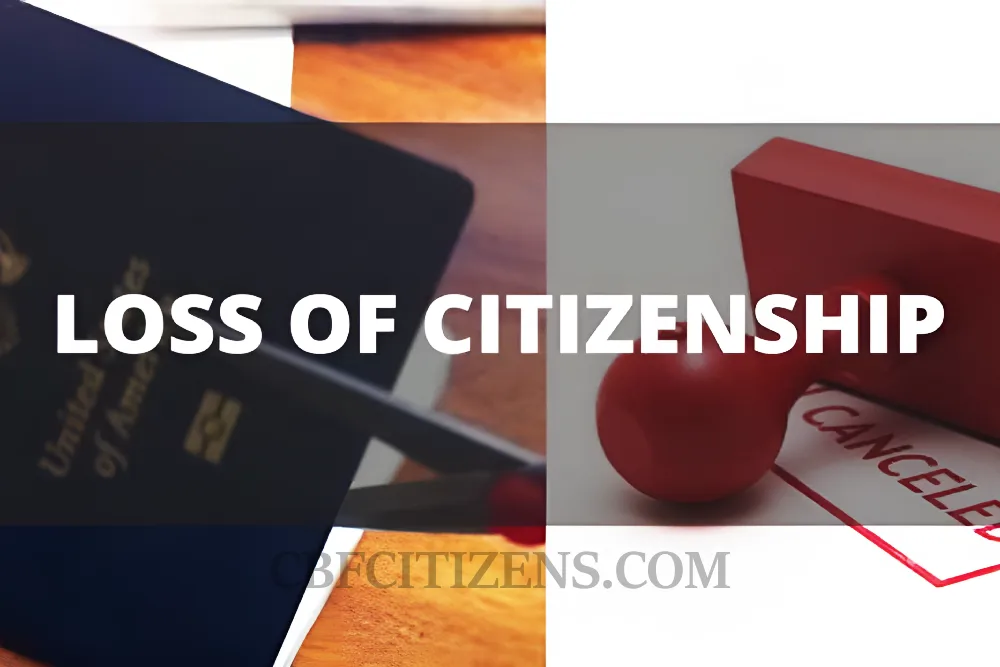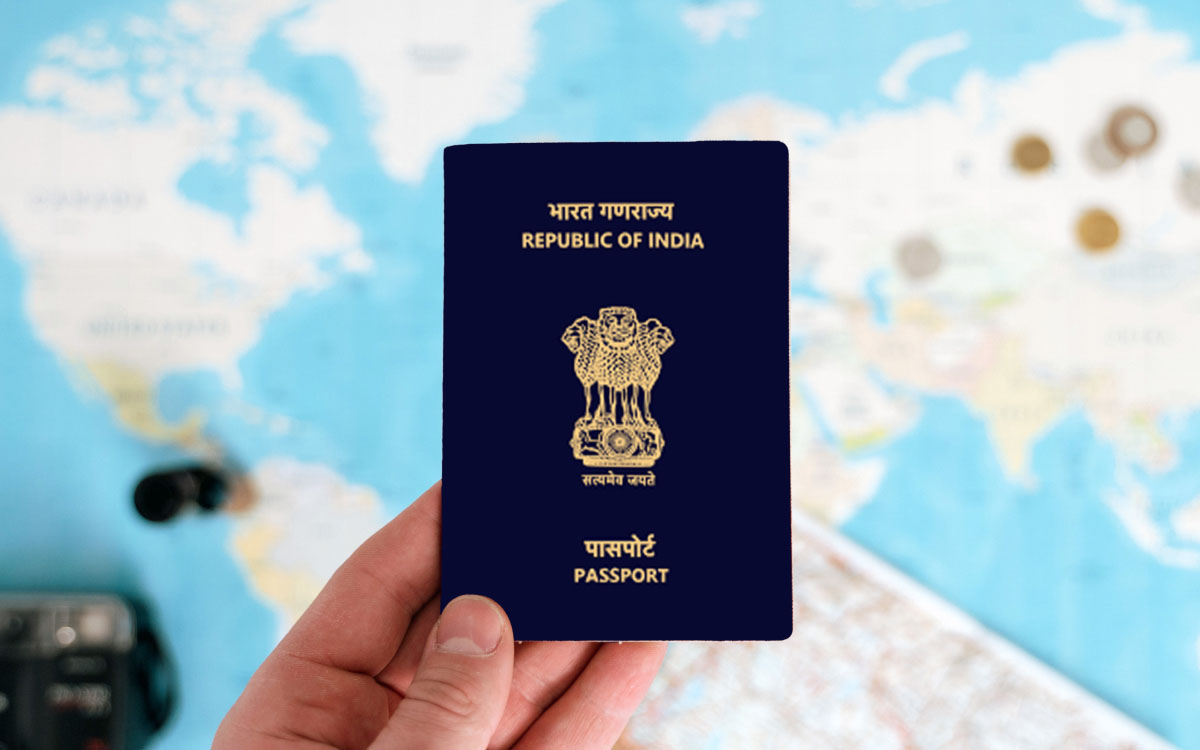Generally, citizenship provides the basis of individual identity, guaranteeing a certain legal recognition of being an individual within a country, with rights and entitlements. It usually allows a bundle of other benefits that come along with the right to reside, work, and participate in the political processes of a nation. Yet, citizenship is not always permanent. The conditions under which the renunciation of citizenship can be revoked are very important for those who have obtained it via the CBI programs.
Introduction to Citizenship Loss
The legal situations when HNWIs contemplate or enter into CBI opportunities that would lead to the loss of citizenship cannot be left unnoticed. In this way, individuals would be able to make informed decisions and remain within the ambit of the laws relating to their new citizenship.
Common Reasons for Losing Citizenship
1. Fraud or Misrepresentation
Fraud or misrepresentation still tops the list of why one can be stripped of citizenship. Any person who acquires citizenship through a deceitful method-for instance, lying in their application-may lose it. Authorities take fraud claims seriously, especially where big deals are involved in CBI programs.
A complete exaggeration of one’s status in finance or no disclosure of former criminal convictions may all lead to such tremendous consequences. Countries which allow CBI programs often perform due diligence in order to have verifications of every submitted application; therefore, any discrepancy can lead to revocation.
2. Engaging in Criminal Activity
Citizenship can be revoked by the commission, especially of serious crimes such as terrorism, organized crimes, or even treason. Countries have the right to protect themselves from individuals who threaten their safety and stability. Committing such activities places not only one’s citizenship in danger but also in the way of lawful punishment and imprisonment.
3. National Security Concerns
Citizenship can, however, be revoked by governments based on issues to do with national security. If an individual is perceived to be a threat to the nation-be it through extremist behavior or affiliations-these very governments can take back the citizenship accorded. Indeed, this is highly applicable in the current era where security concerns are paramount and, as such, various governments remain zealously observant in securing their citizens.
4. Revocation due to Dual Citizens
Dual citizens in some countries may, however face some difficulties that may result in losing one of the nationalities. Perplexing laws around citizenship between countries can drive a person to choose one nationality over the other. For instance, if a person is a dual citizen, they are likely to lose one citizenship if the other country does not recognize dual nationality.
5. Failure to fulfill obligations
Citizenship via these CBI programs may involve various obligations. For instance, inability to fulfill the investment requirements can equally lead to the involuntary deprivation of the citizenship. Compliance with the national or local legislation is a very important consideration; breach of the pre-stated conditions can trigger the revocation mechanism which is almost always part of the contract for citizenship.
6. Voluntary Renunciation
Some would like to give up their citizenship voluntarily. This is either due to personal reasons, considerations of taxation, or all those other elements of the law that deal with the aspects of citizenship being too cumbersome to their liking. It is, however, important to note that, while doing so, it should be brought into light that it is a serious matter and the results of such action are permanent.
Citizenship by Investment-Specific Risks
General principles of citizenship loss do apply, but there is added risk with respect to citizenship granted through investment programs.
Specific Risks for CBI Participants
Applicants who go through CBI programs have to be very careful in terms of investment condition requirements. This is because failure often results in their inability to maintain the citizenship. For example, when an applicant invests in real estate related to the program, he is required to maintain the property or the value of the investment for a given period; failure to that will render him liable to revocation.
Pre-investment and Investment Requirements and Sanctions
Most of the CBI programs have investment thresholds and timelines the participants are supposed to observe. If, for instance, a participant fails to maintain the investment for the requisite number of years or misappropriates the money intended for an investment elsewhere, then he loses his citizenship. Usually, a country will put stringent ways of ensuring compliance and observing investment promises.
CBI Agreement Revocation Clauses
Most of the CBI agreements make provisions for the revocation of citizenship based on specific circumstances under which such a decision may be reached. Any prospective client should review their agreement to understand in detail the possible connotations of one’s action of non-compliance. Legal counsel is best placed to advise on these clauses in a view to keeping the client informed of his obligations.
Compliance with Local Laws and Continuing Obligations
Compliance with the local legislation, as well as the ongoing ones, is something very crucial to any participant of CBI. Further from the investment that one is required to make at the commencement, each individual must keep themselves updated on any legislation changes affecting their citizenship. This can be a case of compliance of tax laws, residency, or any other legal requirement that comes into place by the host country
International Laws & Standards
Accordingly, the order of the revocation of citizenship is not governed merely by domestic laws, but also partly by international laws and standards.
Overview of International Laws
International laws and conventions bind nations on the question of citizenship and when it may be revoked. The United Nations, for example, emphasizes that the rights of individuals must be protected and expresses disfavor regarding the arbitrary deprivation of citizenship by any nation. However, such nations still reserve the rights to determine when citizenship may be lost, and it can be terribly different from one nation to another.
Global Standards and Examples
Most of the CBI countries, such as St. Kitts and Nevis or Dominica, have established laws on revoking citizenship. St. Kitts, for example, specified certain clauses in its CBI law where it can revoke citizenship either by grounds of criminality or fraud. Being aware of such standards is important for future clients because they can gauge how stable or even reliable their sought-after citizenship will be.
Examples of Revocation of Citizenship
Several real-world examples reflect the importance of compliance, and on the second side, the seriousness of non-compliance regarding the requirements for citizenship.
Real-Time Case Examples of Revocation
Notable cases have involved the revocation of citizenship due to a failure in the requirements of CBI. Some representative examples include one case of an investor who had obtained citizenship via investment in real estate in St. Kitts and then did not keep the property as required. Cases like these heighten the need to understand the commitment, so to speak, or obligations that come with acquiring citizenship through investment.
Examples for Specific CBI Countries
These countries have not shied away from taking strict actions even against fraudulent activities that applicants resorted to with the view to attaining citizenship. For instance, a noted investor was found to have filed fraudulent documentation for a CBI application; his citizenship was revoked in Dominica. These serve as deterrents for applicants eyeing CBI programs on the need to observe integrity and transparency in these processes.
What to Do if Facing Citizenship Revocation
At risk individuals who face the potential of losing their citizenship have a number of ways to remedy their situations if appropriately utilized.
Things to Do in Case of Revocation
- Getting Proper Legal Help: The first thing to do is to seek advice from an immigration lawyer or any other legal consultant who has dealt with issues concerning citizenship. Such experts will help to navigate the intricacy of revocation and the possibility of an appeal.
- Know Your Rights: Understand your rights under the relevant laws and agreements. In this aspect, knowledge of the legal environment in which one is operating can help the applicant to make appropriate decisions and safeguard his interests.
- Gather Documentation: Gather all documents that may be relevant to support the application or to prove the conditions of citizenship, such as proof of investment, tax records, and correspondence exchanged with the concerned authorities.
Role of Legal Advice – Appeals Process
This, in view of the probable revocation of citizenship, is when legal advice becomes important. An immigration attorney would review the case and, if necessary, guide the applicants through the appeals process. They can assist the applicant to construct a good case of appeal, citing compliance and proving that the applicant is indeed a law-abiding citizen.
Good Standing with the Country of Citizenship
Such a risk of losing citizenship could be lowered by being on good terms with the issuing country. This may include: obtaining knowledge on changes to local laws, following any tax requirements, and becoming involved in the community. Positive interaction builds bridges of goodwill and may protect from issues that may arise in the future.
Conclusion
Understanding the associated risks of losing citizenship is key to HNWIs considering or already undertaking a citizenship-by-investment program. Knowing some of the most common causes of revocation and the specific risks associated with CBI will give them confidence in pursuing their citizenship journey.
Compliance with the law, being informed about changes in legislation, and then seeking legal advice where it may be required will all be important steps in protecting one’s status as a citizen. With the right knowledge and support, prospective clients can make informed decisions to protect their investment and the rights and privileges that come with citizenship.
In this fast-changing landscape of global mobility, transparency and trustworthiness in its processes surrounding citizenship are paramount. The ability to communicate these values allows citizenship to be treated with confidence and its rights and privileges preserved.











